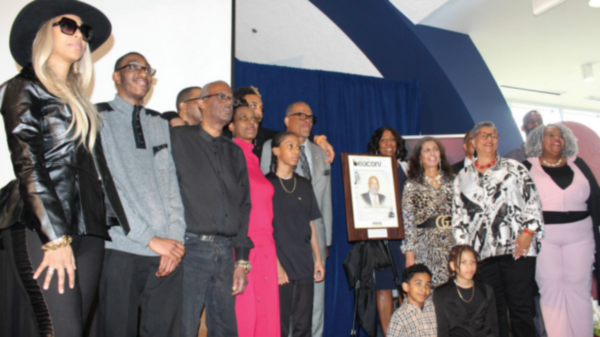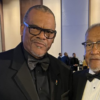Draft Report not amended to address community concerns, short timeline means minimal public input

By NNPA Newswire
By Keith Burbank, Bay City News and the Post News Group staff
Oakland officials have released a final environmental impact report for the A’s proposed new stadium and development at Howard Terminal, a process with a short timeline over the holidays allowing only for minimal public comment.
The report is required by the California Environmental Quality Act and analyzes potential effects of the project on the surrounding environment.
The timing of the release of the port was of concern to many. It was released on Friday, a week before Christmas, and goes to the Planning Commission mid-January, a small window of time during a busy time of year for the public to read and comment on the report.
Further, the final report does not include any significant changes to the draft version, which means it was not amended to consider more than 400 comments made on the draft version. However, city staff did respond to each comment.
Oakland Mayor Libby Schaaf, a strong supporter of Oakland A’s owner John Fisher’s stadium deal, was enthusiastic about the report.
“Releasing the final Environmental Impact Report (FEIR) is a major milestone on our path to build a new waterfront ballpark district that will create up to 18 acres of beautiful public parks, more affordable housing, and good jobs for Oaklanders,” Mayor Schaaf said in a statement. “The 3,500-page document is thorough and exhaustive, and it ensures that the project is environmentally safe and sustainable,” Schaaf said.
The mayor said the report’s timing keeps the city on track to bring about the final vote to the city council in 2022, bringing the city “one step close to keeping our beloved A’s rooted in Oakland.”
Others were less enthusiastic. The East Oakland Stadium Alliance and port business leaders are raising concerns and urging caution.
“During the Draft EIR (Environmental Impact Report) phase, our coalition and others submitted detailed comments regarding the need for the city to revise and recirculate the Draft EIR, which was inadequate on numerous fronts, but it appears the city has chosen to ignore these requests and refused to re-circulate,” Mike Jacob, Vice President and General Counsel of the Pacific Merchant Shipping Association in a press release from the East Oakland Stadium Alliance.
Jacob also said that the timing of the report, released just before the holidays, reads like the city playing “hard-ball” with the community. “Port stakeholders are working around the clock to keep goods moving during an unprecedented supply chain crisis and community advocates are focusing on issues like feeding and housing those in need,” he said.
Jacobs also decried the city’s lack of progress on Seaport Compatibility Measures or a Community Benefits Agreement, despite the challenges he says the project presents for the maritime and West Oakland communities. “Until these items are presented to the public for review, in addition to a thoroughly vetted financial plan, the City and County cannot in good faith make judgments about whether this project is worth the numerous costs to our taxpayers and community,” he said.
“We ultimately anticipate the FEIR will confirm what we already know: the A’s and the City are simply not interested in funding the significant investments necessary to prevent this project’s disruption to the Port of Oakland’s supply chain or address its significant negative impacts to West Oakland and the environment.”
A’s president Dave Kaval also called the release of the report a milestone, one that is three years in the making. But the team needs a decision from the elected officials in Oakland as soon as possible, he said.
Keeping the pressure on Oakland, the A’s are also still considering moving the team to Las Vegas, paving paths for the team in both cities. He said there is momentum on both paths.
Kaval said the A’s are in the final stages of selecting a potential site in Las Vegas, which he thinks will be announced in the next month or so.
City officials will recommend to the Oakland Planning Commission that it certify the report and send it to the city council for approval.
City officials and the A’s are now negotiating the final agreements. The Planning Commission will take up the city’s recommendation on Jan. 19, and the city council may vote on the report in February, which, if approved, would complete the environmental review process.
This article is by Keith Burbank, Bay City News, and the Post News Group staff.









You must be logged in to post a comment Login